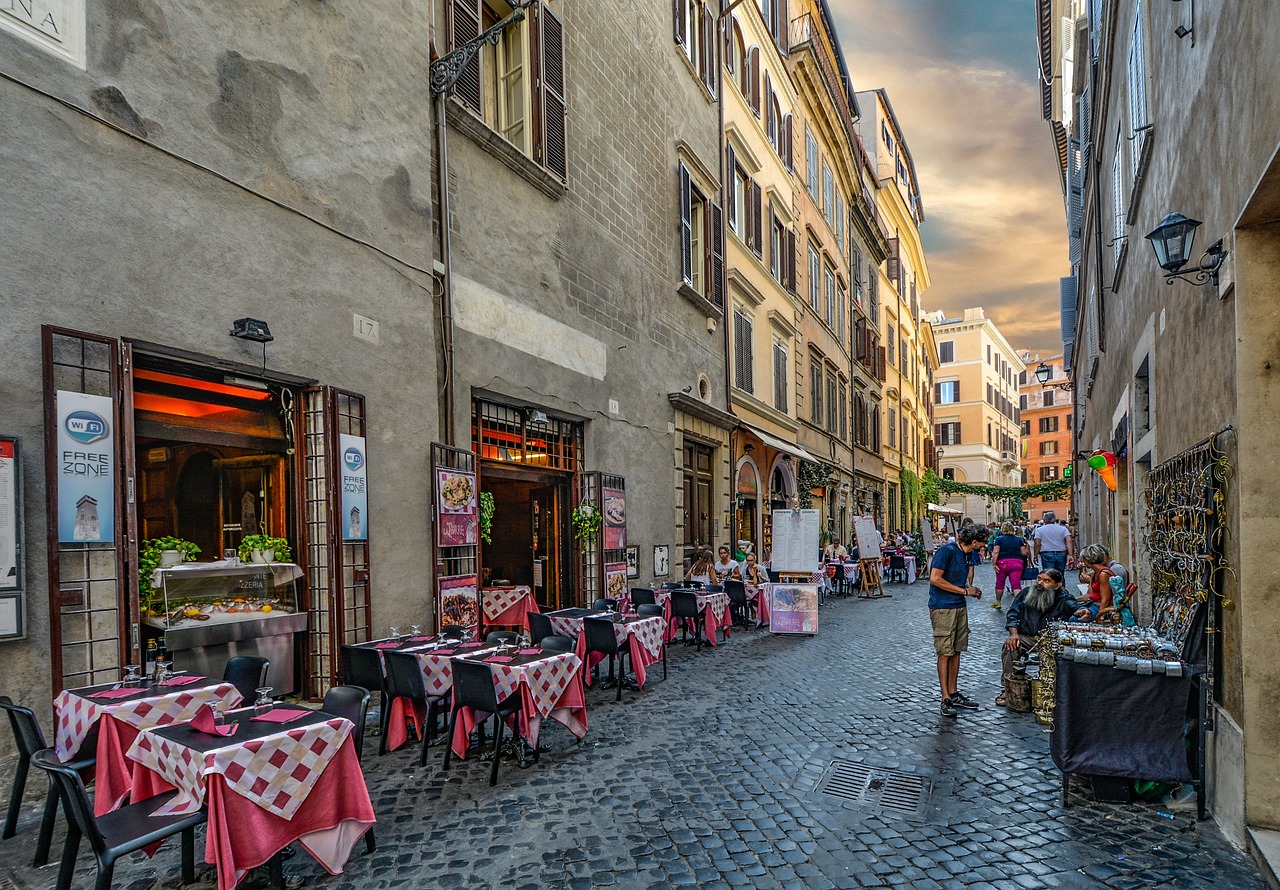
You are not Italian but want to know how to find a job in the wonderful country of Italy? You have come to the right place!
This blog post will explain what to expect from the job market in Italy, the legal requirements, where to look for jobs in Italy, and the steps on how to find a job in Italy. If the topics answer at least one of your questions, keep on reading.
Note: this post includes affiliate links. I gain a small commission from the provider each time you click the link and book a service through it. That comes at no extra cost to you. Every little commission helps me run this blog and provide better content for you.
do i need to know italian to get a job in italy?
The number one barrier for foreigners is the language. To find a job in Italy, expect to know the Italian language by a level equivalent to at least B1. Learning the language massively increases your chances of getting hired! Make sure to invest your spare time in taking an Italian language class or start learning on your own. Read my post about how to learn Italian if you are a complete beginner.
THE JOB MARKET IN ITALY - WHAT TO EXPECT?
Finding a job in Italy as an expat is difficult, but not impossible. Here are some of the most interesting facts about the Italian job market:
- Italy has one of the highest unemployment rates (data taken from Statista). With an unemployment rate of 7.8%, Italy ranks third in Europe, right behind Spain (12,5%) and Greece (11,6%). For comparison, the average unemployment rate in the European Union is 6%.
- The jobs currently in demand include manual workers, marketing professionals, engineers, and waiters.
- The highest-paid jobs in Italy are surgeons, lawyers, bank managers, marketing directors, and college professors.
- The average salary in Italy is around 1500€ net per month for a 14 months salary.
- By law, there is no minimum wage in Italy – the salary is most of the time based on collective bargaining agreements for each sector.
legal requirements to work in italy
Before applying for a job in Italy, familiarize yourself with the legal requirements to work in Italy. Those differ whether you come from an EU or a non-EU country.
a) European countries
European Union assures the free workflow, so your job here is easier.
To work in Italy as an EU citizen, you must have the following:
- Permanent residency in an EU country
- Documentation (ID or better, a passport – always use a passport whenever you can as those are considered more valuable in Italy)
- Proof of health insurance in your home country
- Codice fiscale
- Additional documents that your company might ask to provide
b) Extra-European countries
If you come from a non-EU country, first thing to ensure is to have a valid work visa.
There are several types of work visa types in Italy:
- Salaried employment
- Seasonal work (for agriculture or tourism)
- Long-term seasonal work (to work on seasonal activities for 2 years)
- Sports activities
- Seasonal work
- Working holiday
- Scientific research
- Other
Coming from EU, I am personally not a great help with obtaining a visa. Make sure to check with the Italian embassy in your country or, alternatively, ask Google 🙂
WHERE TO LOOK FOR JOBS IN ITALY?
The Italian job market is flooded with great work opportunities if you know where to look. The number of jobs depends on your desired field of work as well as the part of Italy you wish to work in.
Northern Italy comes with more opportunities in sectors, such as finance or legal sector, consultancy, or similar. The south is more oriented towards agriculture and tourism. Mind that English is also more widely spoken in the north. If English is your strength, think about applying for an international company; they might not require you to know Italian!
Below is a list of some websites that offer job positions in Italy:
- Indeed
- Glassdoor
- Careerjet
- Jobbydoo (Jobbydoo is a platform offering job positions from major sites, all at one place and easily accessible by just one click! Jobbydoo offers more than just job vacancies – you can discover the salaries in Italy based on location, skills and experience. Check their website to know exactly what salary to expect when moving to Italy 🙂 )
Note: Are you a student looking for a job in Italy after your studies? Several universities in Italy work in partnership with Italian companies and you can find job offers directly on your university website.
THE STEPS ON HOW TO FIND A JOB IN ITALY
Besides following the websites for jobs in Italy linked above, I strongly suggest you do the following.
1. Focus on LinkedIn and update your LinkedIn profile to a professional level
LinkedIn is, in my opinion, the best place to look for jobs in Italy. Duplicate your profile in the Italian language to gain some advantage. After doing so, apply for jobs directly through the LinkedIn Jobs platform.
I have taken classes on how to do it and helped to improve several LinkedIn profiles for friends, so I can totally help you with that! I’m also above excited about making new connections, so feel free to add me on LinkedIn!
You can add me on Linkedin by clicking here.
2. Tailor your CV in Italian
Companies in Italy rarely require the use of standard Europass CV; instead, the practice uses a simple, black-and-white standard format. Two things to keep note of here:
- Always prepare your CV on a single-page
- Always tailor your CV and cover letter according to the job you’re applying for
I offer a free CV template you can use for your applications. To get yours, send me a message here.
3. Start applying for jobs and keep applying
It’s important you’re persistent with your applications. Most of the time you won’t receive a response to your application at all, but don’t let that bring you down!
Tip: One of my top suggestions is to apply for jobs directly at company websites. Find a company that you would like to work for and open its official website. Look for “lavora con noi” page to find all open job positions or send a spontaneous job application. Trust me, it works.
4. Believe in yourself and do not give up, the right job will find you. If you receive no response it simply wasn't meant to be.
I hope my tips have given you a clear insight into how the Italian job market works and how to apply for a job in Italy. If you have any questions about finding a job in Italy or life in Italy in general, send me a message.
FURTHER READINGS

Hi, it's Neja
I am an expat from Slovenia,
living in Milan since 2021 and writing a travel blog for all of you who are curious about life in Italy or traveling in Europe.
Follow me on my journey and learn everything about Italy and the European destinations.






